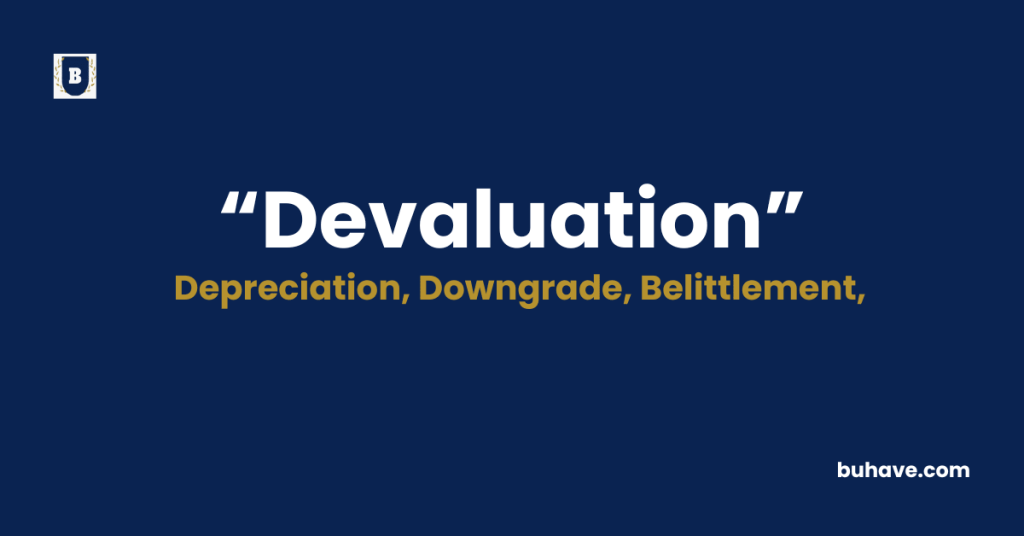The word ‘Devaluation’ (Noun) refers to the reduction or lowering of the value or importance of something, especially in terms of currency or personal worth. In this guide, you’ll learn the full definition, synonyms, antonyms, etymology, and real-life examples of how to use ‘Devaluation’ correctly in sentences.
Devaluation Explained in Depth
A complete and detailed guide to the word ‘Devaluation’ including meaning, definition, examples, etymology, synonyms, and antonyms.
Meanings of Devaluation
“Devaluation” commonly refers to the official lowering of the value of a country’s currency in relation to other currencies. More broadly, it can also mean a decrease in the perceived worth, status, or significance of something or someone.
Definition
Devaluation is defined as the act of reducing the value of something, particularly the decrease in the value of a nation’s currency relative to others. In a figurative sense, it also refers to diminishing someone’s achievements, contributions, or importance.
Etymology
The term “devaluation” originates from the Latin prefix de- meaning “down” or “away” and the word valere, meaning “to be worth.” It entered English in the 19th century through the French word dévaluation, especially in economic contexts.
Example Sentences
- The government announced a devaluation of the national currency to boost exports.
- Her contributions were met with devaluation by colleagues who didn’t recognize her effort.
- The constant criticism led to a gradual devaluation of his self-esteem.
Devaluation Synonyms
- Depreciation
- Downgrading
- Reduction
- Diminishment
- Belittlement
- Undervaluation
- Minimization
- Disparagement
- Demotion
- Discounting
Devaluation Antonyms
- Appreciation
- Enhancement
- Upgrade
- Promotion
- Elevation
- Valuation
- Recognition
- Respect
- Esteem
- Advancement
FAQs about Devaluation
Here are some frequently asked questions (FAQs) about the word “Devaluation”
1. What is the difference between devaluation and depreciation?
Devaluation is a deliberate policy decision to lower a currency’s value, while depreciation happens due to market forces without official intervention.
2. Can devaluation apply to people or feelings?
Yes, in non-economic contexts, it can refer to diminishing someone’s value, importance, or contributions emotionally or socially.
3. Is devaluation always negative?
Economically, it can have both pros and cons. It may help exports but also cause inflation. Emotionally or socially, it is generally viewed as negative.
4. What causes currency devaluation?
Governments may devalue currency to combat trade deficits, boost exports, or stimulate economic growth.
5. How does devaluation affect consumers?
It often leads to higher prices for imported goods, reducing consumer purchasing power domestically.

















